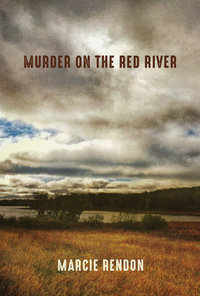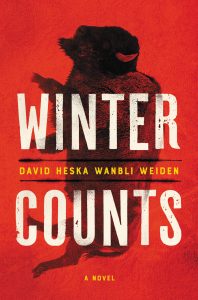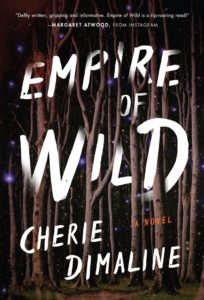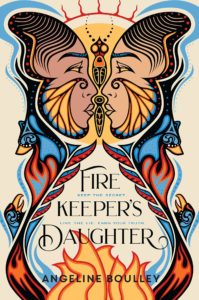In my debut thriller, Firekeeper’s Daughter, 18-year-old Daunis witnesses a murder and must use her knowledge of chemistry, traditional Ojibwe medicines, and even hockey to find out who is behind a series of drug-related deaths on her Indian reservation. I don’t shy away from telling a darkly realistic coming-of-age story. But I also include comic moments that are also every bit as real on my reservation. A great grandmother named Granny June who, upon seeing a graffitied billboard—one letter changed to read: VOTE! It’s your tribal eRection—dryly remarks, “I’d vote for that.”
I lived and worked for many years in my tribal community in Sault Ste. Marie, Michigan. One of my favorite activities was enjoying lunch with our elders at the Nokomis-Mishomis (Grandmother-Grandfather) Center. Their laughter was the sound of good medicine. They knew each other’s stories like seasoned comics. Knew their pain and losses, as well.
Mysteries and thrillers typically center around a crime. Those set in or near Native communities are no exception. But within those stories, I am drawn to familiar comforts. Ornery elders. Quirky aunties and uncles. The sidekick who would take your secrets to the grave. Most of all, I love the humor that finds breath within suffocating darkness. Others might label it survival, resilience, or healing. I prefer defiance. As with everything, there is a word for it in Anishinaabemowin (Ojibwe language). Nin-gigisibingwebaap translates to, “I laugh with tears in my eyes.”
Here are some of my favorite mysteries and thrillers involving crimes occurring within or near Native communities:

Murder on the Red River by Marcie R. Rendon (White Earth Chippewa)
Technically, protagonist Renee “Cash” Blackbear is the “sidekick”, helping Sheriff Wheaton figure out who killed a Native man. She travels in her dreams, finding the dead man’s wife and kids on the Red Lake Reservation. A man she dubs “Long Braids” provides tenderness and humor. Author Marcie Rendon writes in the sensory-rich way Anishinaabe storytellers describe places and characters with such vivid eloquence that you are transported elsewhere as well.

Winter Counts by David Heska Wanbli Weiden (Sicangu Lakota)
Virgil Wounded Horse is the vigilante enforcer you hire when justice systems—federal or tribal—fail those on the Rosebud Indian Reservation. Given the jurisdictional quagmire of the Major Crimes Act and the lack of resources to prosecute anything but slam-dunk cases, it means steady work for Virgil. That is, however, until his nephew overdoses on heroin and justice becomes personal. Along with his ex-girlfriend sidekick, Marie, Virgil searches for answers and justice amidst a perfect storm of drug dealers, tribal politics, and Native identity.

The Round House by Louise Erdrich (Turtle Mountain Chippewa)
Thirteen-year-old Joe wants justice after his mother is sexually assaulted and refuses to identify the culprit. Joe’s father, the tribal judge, is convinced the answer to the mystery is within his court files. Joe’s bittersweet coming-of-age story is a masterpiece. Devastating heartbreak is carefully juxtaposed with unforgettable nicknames, shenanigans with his friends, and raunchy stories told by elders.

Empire of Wild by Cherie Dimaline (Georgian Bay Metis)
Joan’s husband, Victor, has been missing for a year when she wanders into a revival tent and sees him as a traveling preacher. The Reverend Eugene Wolff doesn’t know Joan and has been with the congregation for three years. Joan is undeterred; she wants the truth and her husband. Her sidekick is Zeus, her 12-year-old, Johnny Cash-loving nephew whose quips and yups add levity to her quest.
***


















